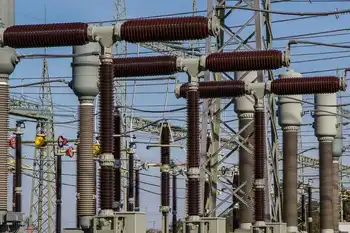Data center cooling from the “Frozen Tundra”
By Information Management
Substation Relay Protection Training
Our customized live online or in‑person group training can be delivered to your staff at your location.

- Live Online
- 12 hours Instructor-led
- Group Training Available
So when the time came to expand the data center and upgrade the cooling systems executives at Associated Bank seized the opportunity to save some energy and money by tapping into the great outdoors.
Thanks to the efforts of executives who envisioned and sketched out a new type of cooling system not available on the market, and a Wisconsin state agency that provided expertise and a $116,000 grant, Associated Bank now has a glycolbased free cooling system at its two data centers. Glycol is akin to the antifreeze in a car. During the winter, pumps move the glycol around, allowing the outside air to cool the liquid, which in turn cools the data center. The compressor, a costly energy drain, stays off.
Gary Dietrich, svp and director of internal services at Associated Bank, says the bank will save 1.4 million kilowatthours annually, equivalent to almost 3,000 barrels of oil, enough to power 150 Wisconsin homes each year. The system eliminates 2.5 million pounds of carbon dioxide that would go into the atmosphere. All this translates into $115,000 of savings on the banks energy bills per year.
As soon as the temperature hits about 40 degrees you start to see a savings right away, he says. Youre not running anything but a pump and a fan. These savings will pay back the investment in about three years, Dietrich says.
Glycol has two advantages, explains Geoff Overland, business development manager of IT and data centers at Focus on Energy, an agency that runs Wisconsins energy efficiency and renewable energy program. Besides glycols ability to absorb the outdoor temperature to cool the data center, moving a liquid around is much more energy efficient than moving air, he says, which is what a compressor does. Focus on Energy has a $50 billion business program budget and since 2001 the agency has helped businesses save $172 million in annual energy costs. Besides Vermont and Oregon, Overland knows of no other similar state organizations.
Associated Banks innovation is a cooling system that combines the glycol system which is not new technology with the more common mechanical chiller system. The latter is necessary in the warm months when the outside temperature cannot sufficiently cool the glycol. Convinced it should be easier, Associated Bank challenged the manufacturer, Liebert Corp., to create one unit with both technologies.
Dietrich estimates the extensive upgrades to the data centers cost about $500,000 each, about 30 percent less than if the bank had installed chiller and glycol systems separately. Its also a space saver, and is broadly applicable to other companies.
Focus on Energy has other programs, such as paying $250 for each server a company virtualizes. The agency will also pay $60 for each PC which consumes about 200 watts of power thats converted to a thin client terminal which consumes as little as five watts.











